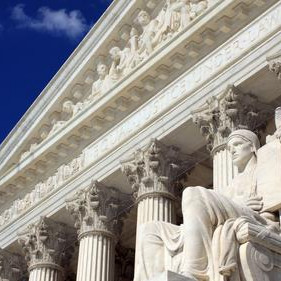Supreme Court Settles High-Profile FCA & VA Disputes For Gov’t Contractors With Two Major Decisions

On June 16, 2016, the U.S. Supreme Court issued two unanimous decisions resolving major disputes over government contracting law. All government contractors should take some time to review the implications of these significant rulings for their businesses.
In Universal Health Services, Inc. v. United States ex rel. Escobar, the High Court endorsed the "implied certification" doctrine in False Claims Act (“FCA”) cases, ruling that a contractor can be liable under the FCA for billing the federal government while not in compliance with regulations, even if those regulations are not explicit conditions of payment. This unanimous decision settles the question of whether FCA liability extends to situations in which a contractor does not explicitly certify compliance with a particular regulation, and it affirms the breadth of the FCA’s applicability.
In Escobar, for instance, the appellant operated a mental health facility serving Medicaid beneficiaries, but its employees were not “actually licensed to provide mental health counseling or authorized to prescribe medications or offer counseling services without supervision,” the Court explained. By submitting Medicaid reimbursement claims under certain billing codes, which made implicit representations about “specific services provided by specific types of professionals,” the provider ran afoul of the FCA even though payment under the contract was not explicitly conditioned on compliance with separate qualification and licensing regulations requiring that only certain types of professionals could render those services. While the Court noted the importance of showing that such an omission was material, as materiality is a key element of an FCA claim, contractors should nevertheless take care to ensure compliance with all of the myriad regulations that apply to their ongoing contracts, whether directly or indirectly, to avoid exposure to potential FCA liability.
In Kingdomware Technologies, Inc. v. United States, the Court also ruled unanimously, settling a high-profile debate over whether the U.S. Department of Veterans Affairs (“VA”) is required to give preference to Veteran Owned Small Businesses (“VOSBs”) for all of its procurements, or only to meet the VA's small business contracting goals. The Supreme Court held that the relevant federal statute is unambiguous that the VA must apply VOSB preferences for all of its procurements, as long as the so-called "Rule of Two" is met, regardless of whether VA's small business contracting goals have already been met. The “Rule of Two” applies when there is a “reasonable expectation” that at least two VOSBs will bid for a contract at “a fair and reasonable price that offers best value to the United States.” In such cases, preference must be given to VOSBs. Only when the Rule of Two does not apply can the VA open a procurement to general competitive bidding.
These two decisions settle major questions and establish tough bars for government contractors when it comes to potential FCA liability and access to VA contracts. Both decisions were written by Justice Thomas.
